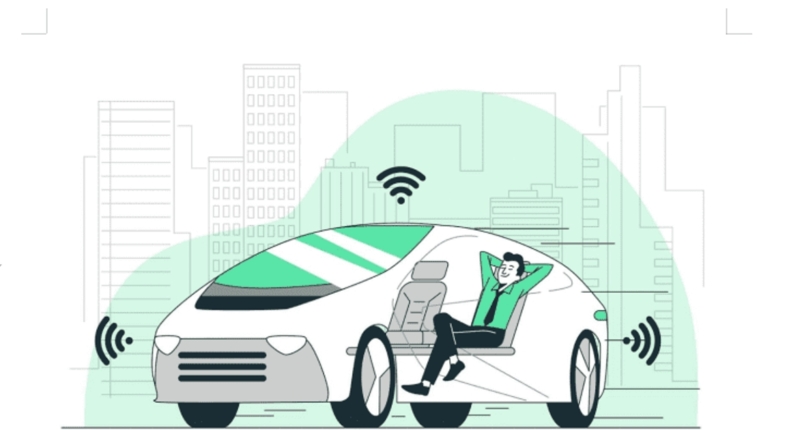Electronic Design Companies (EDCs) play a significant role in the design and development of autonomous and self-driving vehicles. EDCs provide electronic design services, including designing and testing electronic systems, hardware and software development, and sensor technologies. They also ensure that the sensors work seamlessly with the vehicle’s control system, enabling the vehicle to operate safely and efficiently. Arshon Technology is a leading Electronics Design Company that provides a range of electronic design services, including hardware and software development, testing, and support. Autonomous and self-driving vehicles rely on advanced sensor technologies and electronics to navigate roads, avoid obstacles, and transport passengers safely. The design of autonomous and self-driving vehicles is a complex process that requires expertise in electronics, sensor technologies, and software development.
The Importance of Electronics in the Design of Self-driving Vehicles
Self-driving vehicles are the future of transportation, and their design requires expertise in electronics and sensor technologies. These vehicles operate without human intervention, using advanced sensor technologies and electronics to navigate roads, avoid obstacles, and transport passengers safely. In this article, we will explore the role of electronics in autonomous vehicles, examples of companies developing and testing these vehicles, and the importance of Electronic Design Services (EDS) in their design.
The Role of Electronics in Autonomous Vehicles
Electronics play a vital role in the operation of self-driving vehicles. Sensor systems are the most critical component, which detects obstacles, pedestrians, and other vehicles. These sensors work in tandem with other electronic systems, such as GPS and the vehicle’s control system, to make real-time decisions about speed, direction, and braking. Electronic systems must also ensure the safety and security of passengers and the vehicle.
Examples of Autonomous and Self-Driving Vehicles
Numerous companies, including Waymo, Tesla, and General Motors, are developing autonomous and self-driving vehicles. Waymo’s fully autonomous taxis are already operating in Arizona, and the company plans to expand to other cities soon. Tesla’s Autopilot system is being used in its Model S, X, and 3 vehicles, which allows them to drive themselves in certain conditions. General Motors’ Cruise Origin is a fully autonomous vehicle designed specifically for ride-sharing services.
Electronic Design Services for Autonomous Vehicles
Electronic Design Services (EDS) are crucial in designing autonomous and self-driving vehicles. These services involve designing electronic systems, hardware, and software that enable these vehicles to operate autonomously. EDS providers work closely with vehicle manufacturers and software developers to ensure that the electronic systems and sensors are integrated into the vehicle’s design and function seamlessly.
In conclusion, the design of self-driving vehicles is heavily reliant on electronics and sensor technologies. These technologies are integral to ensuring the safety and security of passengers and the vehicle itself. As autonomous vehicles become more prevalent, the role of Electronic Design Services will become increasingly important in their design and development.
Developing Autonomous and Self-Driving Vehicles: Examples and the Role of Electronic Design Companies
Autonomous and self-driving vehicles have been in development for years, and several companies are currently working on perfecting these vehicles. In this article, we will explore some examples of autonomous and self-driving vehicles that are being developed and tested, and the role that Electronic Design Companies (EDCs) play in their design.
Examples of Autonomous and Self-Driving Vehicles
Waymo
Waymo, a subsidiary of Alphabet, Google’s parent company, is one of the most prominent players in the autonomous vehicle industry. Since 2017, Waymo has been testing its self-driving vehicles on public roads in Arizona. In 2020, the company announced that it would launch a ride-hailing service in Phoenix using its autonomous vehicles.
Tesla
Tesla, a well-known electric car manufacturer, has been developing its autonomous driving technology, Autopilot. Tesla’s vehicles use sensors, cameras, and radar to enable semi-autonomous driving. The company plans to release a fully autonomous driving system in the near future.
General Motors
General Motors has been developing autonomous vehicle technology through its subsidiary, Cruise. The company announced that it would launch a self-driving taxi service in San Francisco using its Cruise vehicles. The Cruise vehicles are equipped with a range of sensors, including LIDAR and cameras, and are designed to be fully autonomous.
Uber
Uber has been actively testing its autonomous vehicles since 2016. In 2018, one of Uber’s self-driving vehicles caused a pedestrian fatality during a test drive in Arizona, leading to a temporary suspension of testing. The company has since resumed testing.
Baidu
Baidu, a Chinese technology company, has been developing its autonomous vehicle technology through its subsidiary, Apollo. Baidu’s autonomous vehicles use sensors, cameras, and radar, and the company has been testing its vehicles on public roads in China since 2018.
The Role of Electronic Design Companies in Autonomous Vehicle Design
Electronic Design Companies (EDCs) are essential in the development of autonomous and self-driving vehicles. They offer a range of services, including designing and testing electronic systems, hardware and software development, and expertise in sensor technologies.
One of the primary roles of an EDC is to work with the vehicle manufacturer to design and integrate electronic systems into the vehicle’s overall design. This includes designing the vehicle’s control systems, which must interpret data from various sensors, make real-time decisions, and control the vehicle’s movement.
EDCs also work on developing and testing the software that powers the vehicle’s autonomous driving capabilities. They use simulations and real-world testing to ensure that the software is functioning correctly and that the vehicle can navigate different environments safely.
In conclusion, autonomous and self-driving vehicles are becoming more prevalent, and several companies are working on perfecting these vehicles. Electronic Design Companies play a crucial role in the development of these vehicles, offering a range of services to ensure that the electronic systems and software are designed and integrated correctly.
The Role of Electronic Design Companies in Developing Autonomous Vehicles
Electronic Design Companies (EDCs) play a significant role in developing autonomous and self-driving vehicles. EDCs design and integrate electronic systems into the vehicle’s overall design, including the vehicle’s control systems, which interpret data from sensors to make real-time decisions about the vehicle’s movement. EDCs also work on developing and testing software that powers the vehicle’s autonomous driving capabilities.
One crucial role of EDCs is developing the vehicle’s sensor systems, which use LIDAR, radar, and cameras to detect obstacles, road markings, and other vehicles. EDCs must ensure that these sensors work seamlessly with the vehicle’s control system, enabling the vehicle to operate safely and efficiently.
EDCs also provide ongoing support and maintenance for these systems, working with vehicle manufacturers to ensure that electronic systems are updated and maintained to meet evolving safety standards and regulations.
Arshon Technology is a leading Electronics Design Company that provides a range of electronic design services, including hardware and software development, testing, and support. With a team of highly skilled engineers and state-of-the-art technology, Arshon Technology is dedicated to helping companies bring their innovative ideas to life.
In conclusion, the design of autonomous and self-driving vehicles is a complex process that requires expertise in electronics, sensor technologies, and software development. EDCs play a critical role in the design and construction of these vehicles, ensuring their safety and functionality. With the right expertise and technology, we can create a future of safer, more efficient transportation.
Don’t miss interesting posts on Famousbio










